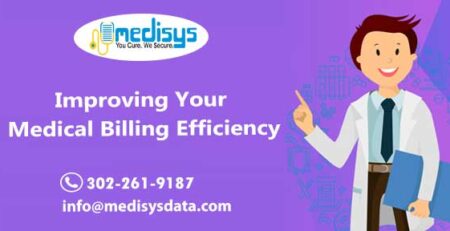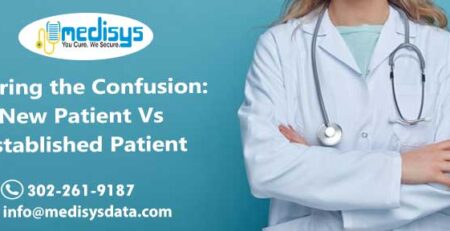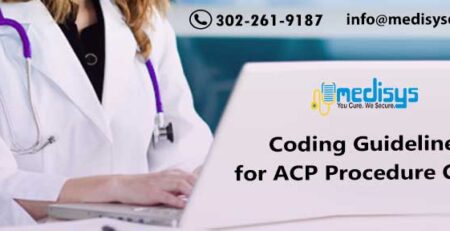The Advance Beneficiary Notice of Noncoverage (ABN) i.e., form CMS-R-131, is issued by providers (including independent laboratories, home health agencies, and hospices), physicians, practitioners, and suppliers to Original Medicare (fee for service – FFS) beneficiaries in situations where Medicare payment is expected to be denied. The ABN is issued in order to transfer potential financial liability to the Medicare beneficiary in certain instances.
Filling Advance Beneficiary Notice (ABN)
ABNs can be downloaded from the CMS website. ABN includes 10 blanks labeled from (A) through (J).
Blank (A) Notifier(s)
Notifiers must place their name, address, and telephone number at the top of the notice.
Blank (B) Patient Name
Notifiers must enter the first and last name of the beneficiary receiving the notice, and a middle initial should also be used if there is one on the beneficiary’s Medicare card.
Blank (C) Identification Number
Notifiers may enter an identification number for the beneficiary that helps to link the notice with a related claim. The absence of an identification number does not invalidate the ABN. Use of this field is optional.
Blank (D)
Blank (D) includes fields like Item; Service; Laboratory test; Test Procedure; Care; and Equipment. The notifier must list the specific names of the items or services believed to be non-covered in the column directly under the header of Blank (D).
Blank (E) Reason Medicare May Not Pay
In this field, notifiers must explain, in beneficiary friendly language, why they believe the items or services may not be covered by Medicare. Common example could be, “Medicare does not pay for this test for your condition.” To be a valid ABN, there must be at least one reason applicable to each item or service listed in the column under Blank (D).
Blank (F) Estimated Cost
Notifiers must complete the column under Blank (F) to ensure the beneficiary has all available information to make an informed decision about whether or not to obtain potentially non-covered services.
Blank (G)
Blank (G) includes three fields i.e., OPTION 1, 2, and 3.
- OPTION 1: This option allows the beneficiary to receive the items and/or services at issue and requires the notifier to submit a claim to Medicare. This will result in a payment decision that can be appealed.
- OPTION 2: This option allows the beneficiary to receive the non-covered items and/or services and pay for them out of pocket. No claim will be filed and Medicare will not be billed. Thus, there are no appeal rights associated with this option.
- OPTION 3: This option allows the beneficiary to receive the non-covered items and/or services and pay for them out of pocket. No claim will be filed and Medicare will not be billed. Thus, there are no appeal rights associated with this option.
Blank (H) Additional Information
This field includes information like:
- A statement advising the beneficiary to notify his or her provider about certain tests that were ordered, but not received;
- Information on other insurance coverage for beneficiaries, such as a Medigap policy, if applicable;
- An additional dated witness signature; or
- Other necessary annotations.
Blank (I) Signature
The beneficiary (or representative) must sign the notice to indicate that he or she has received the notice and understands its contents.
Blank (J) Date
The beneficiary (or representative) must write the date he or she signed the ABN. If the beneficiary has physical difficulty with writing and requests assistance in completing this blank, the date may be inserted by the notifier.
Guidelines for Advance Beneficiary Notice (ABN)
- With the exception of DME suppliers, only healthcare providers and suppliers who are enrolled in Medicare can issue the ABN to beneficiaries.
- The ABN is given to beneficiaries enrolled in the Medicare FFS program. It is not used for items or services provided under the Medicare Advantage (MA) Program or for prescription drugs provided under the Medicare Prescription Drug Program (Part D).
- Skilled Nursing Facilities (SNFs) issue the ABN for Part B services only.
- When Medicare considers an item or service experimental (e.g., a ‘Research Use Only’ or ‘Investigational Use Only’ laboratory test), payment for the experimental item or service is denied as not reasonable and necessary. In circumstances such as this, the beneficiary must be given an ABN.
- ABNs are not required for care that is either statutorily excluded from coverage under Medicare (i.e., care that is never covered) or most care that fails to meet a technical benefit requirement (i.e., lacks required certification).
Medisys Data Solutions is a leading medical billing company providing Medicare billing and coding services for various medical billing specialities. To know more about our billing and coding, contact us info@medisysdata.com/ 302-261-9187
Reference: https://www.cms.gov/Medicare/Medicare-General-Information/BNI/ABN












